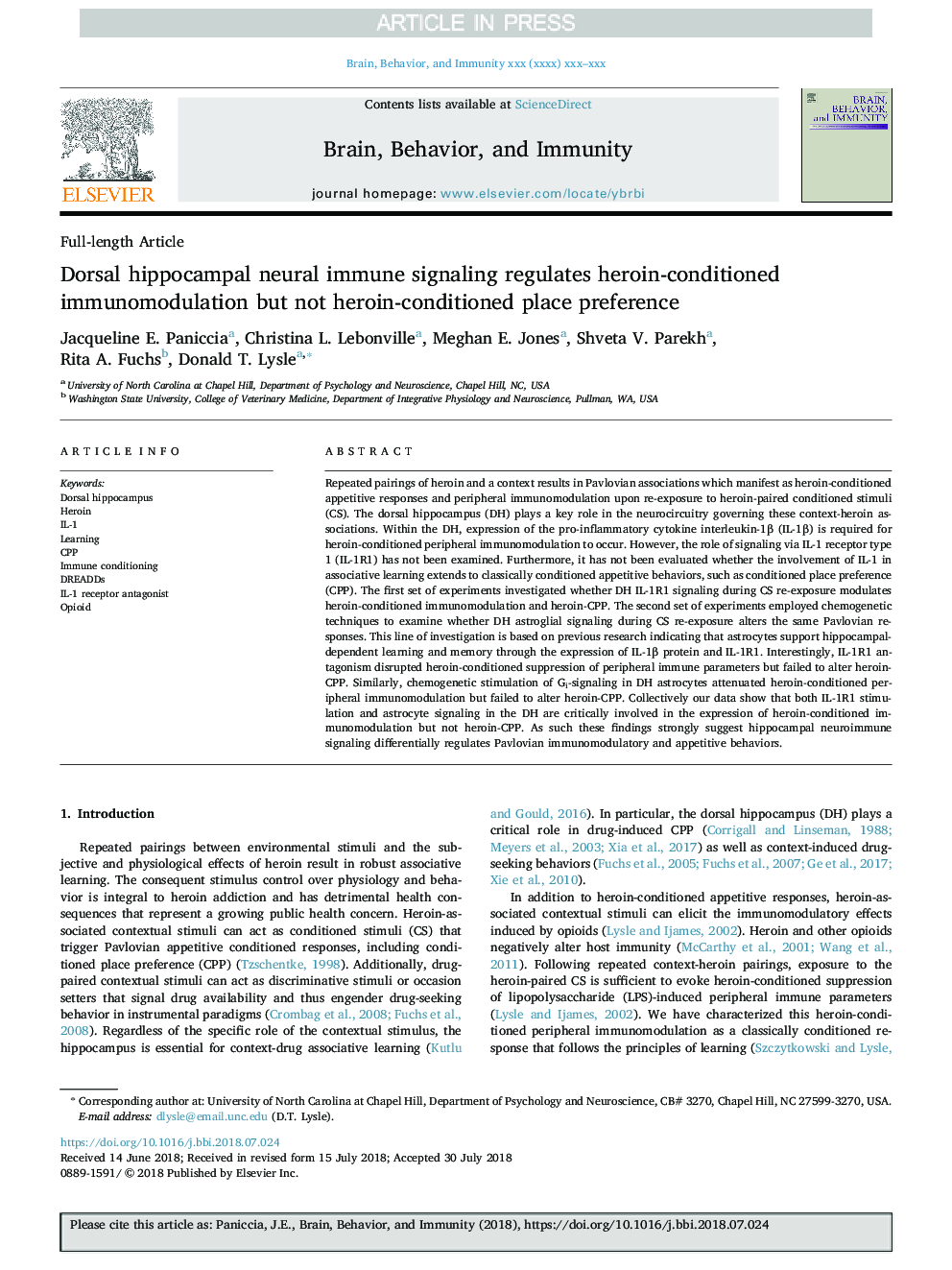| Article ID | Journal | Published Year | Pages | File Type |
|---|---|---|---|---|
| 8960776 | Brain, Behavior, and Immunity | 2018 | 10 Pages |
Abstract
Repeated pairings of heroin and a context results in Pavlovian associations which manifest as heroin-conditioned appetitive responses and peripheral immunomodulation upon re-exposure to heroin-paired conditioned stimuli (CS). The dorsal hippocampus (DH) plays a key role in the neurocircuitry governing these context-heroin associations. Within the DH, expression of the pro-inflammatory cytokine interleukin-1β (IL-1β) is required for heroin-conditioned peripheral immunomodulation to occur. However, the role of signaling via IL-1 receptor type 1 (IL-1R1) has not been examined. Furthermore, it has not been evaluated whether the involvement of IL-1 in associative learning extends to classically conditioned appetitive behaviors, such as conditioned place preference (CPP). The first set of experiments investigated whether DH IL-1R1 signaling during CS re-exposure modulates heroin-conditioned immunomodulation and heroin-CPP. The second set of experiments employed chemogenetic techniques to examine whether DH astroglial signaling during CS re-exposure alters the same Pavlovian responses. This line of investigation is based on previous research indicating that astrocytes support hippocampal-dependent learning and memory through the expression of IL-1β protein and IL-1R1. Interestingly, IL-1R1 antagonism disrupted heroin-conditioned suppression of peripheral immune parameters but failed to alter heroin-CPP. Similarly, chemogenetic stimulation of Gi-signaling in DH astrocytes attenuated heroin-conditioned peripheral immunomodulation but failed to alter heroin-CPP. Collectively our data show that both IL-1R1 stimulation and astrocyte signaling in the DH are critically involved in the expression of heroin-conditioned immunomodulation but not heroin-CPP. As such these findings strongly suggest hippocampal neuroimmune signaling differentially regulates Pavlovian immunomodulatory and appetitive behaviors.
Related Topics
Life Sciences
Immunology and Microbiology
Immunology
Authors
Jacqueline E. Paniccia, Christina L. Lebonville, Meghan E. Jones, Shveta V. Parekh, Rita A. Fuchs, Donald T. Lysle,
